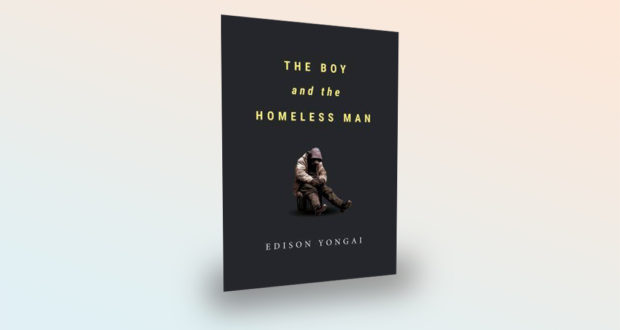African-Australian author Edison Yongai writes a modern day parable about the way in which God invites and challenges the church to love unconditionally and serve selflessly, especially to those in need. Ben Tupou reviews.
What a time for this tale to be told. In the year 2017 where phrases such as “Let’s build a wall” or “Send them back to where they came from” are being propagated and, in some cases championed by people of power, comes the moral tale of The Boy and the Homeless Man.
Yongai frames his novel through the eyes of a nine-year-old boy, as he watches his church and community react to a homeless man that sets up a tent in their suburb and, more outrageously, outside the pastor’s house.
The boy, nicknamed Jil (and is in fact the pastor’s son), is confronted with the contradicting reality of what the church is called do versus what it sometimes actually does.
Christianity and ethics seem to go hand-in-hand but what happens when there are grey areas? What happens when the invitation to share food with the hungry, water to the thirsty and welcome the stranger into our homes (as expressed in Mathew 25:35) doesn’t quite align with the numerous warnings we are given as children about the dangers of strangers.
Living out the Christian faith in today’s modern world is not always as simple as we think but then again sometimes it is.
Yongai’s approach in telling the story through the eyes of young Jil reminds readers of a child-like faith and in keeping within the context the simple language of the book lends itself to young readers.
The book often incorporates scripture references and big questions circling “What would Jesus do?” or in the book’s case, “What would [Jil’s] dad, Pastor Gimras, do?”
The end of the tale may seem a little predictable to some readers (due to a similar story circulating social media) but still holds a critical message to the church.
Alike Jesus’ warnings against hypocrisy amongst the Pharisees, Yongai’s modern day parable holds a magnifying glass to how the church needs to respond to the less fortunate, refugees or other marginalized groups.
There is emphasis on how closely the eyes of our children are watching the church and what impact this will have in moulding their attitudes for the future.
Yongai concludes his novel wrapping everything up neatly in a bow—but considering this is a tale of politics and unwelcomed visitors, this bow may actually look a little different in reality.
Ben Tupou
The Boy and the Homeless Man
Author: Edison Yongai
Publisher: Morning Star Publishing
2016
To purchase visit Morning Star Publishing
 JourneyOnline
JourneyOnline




